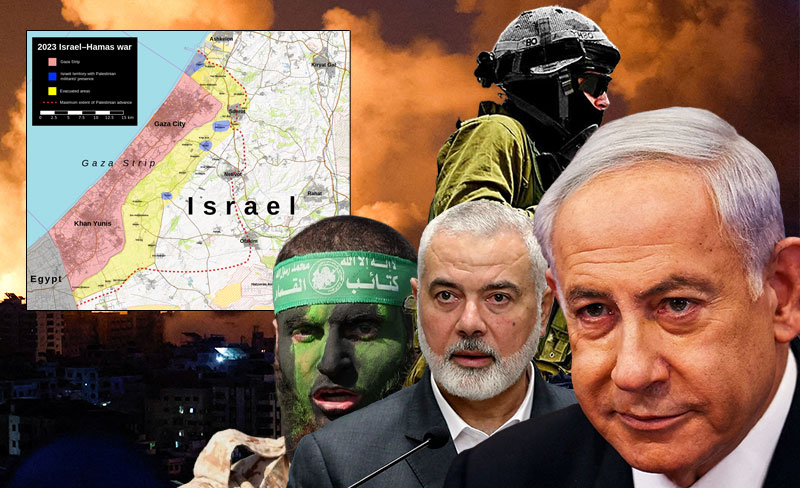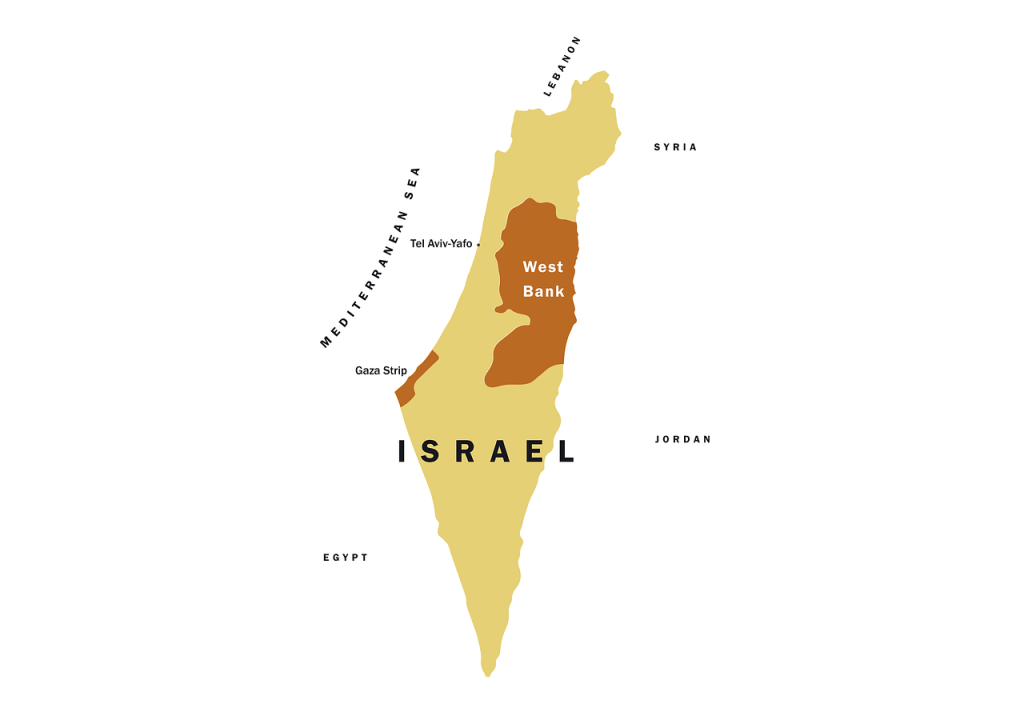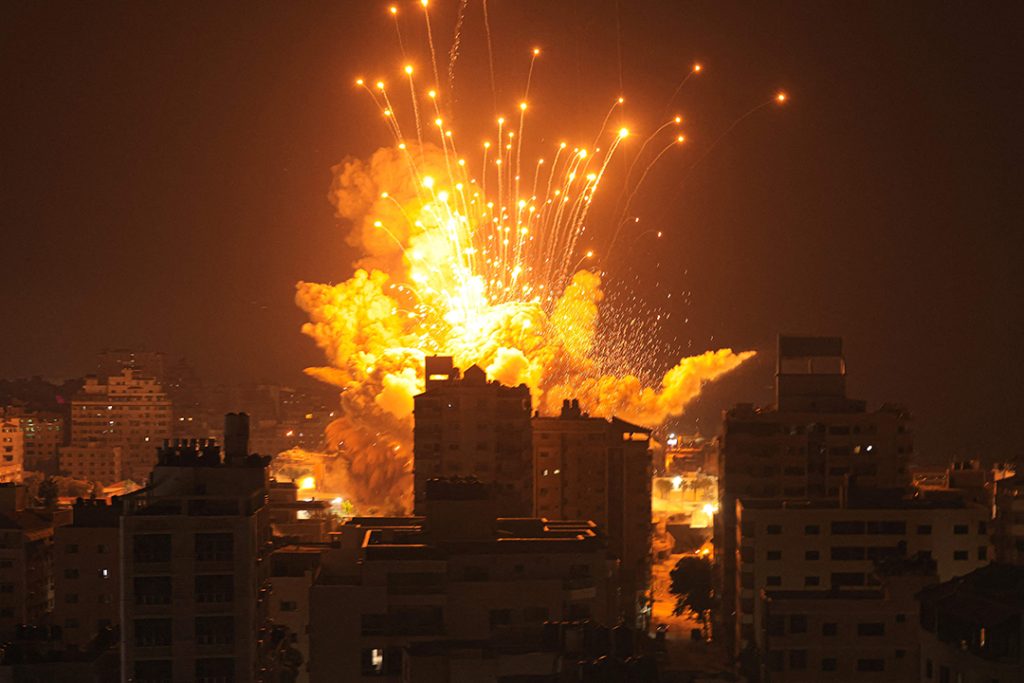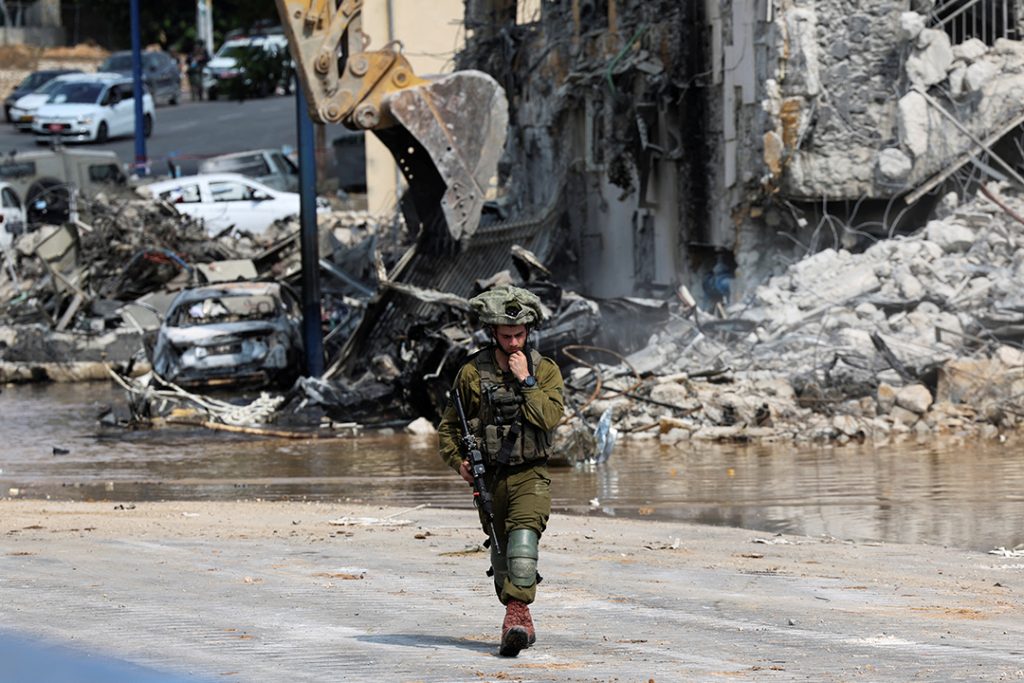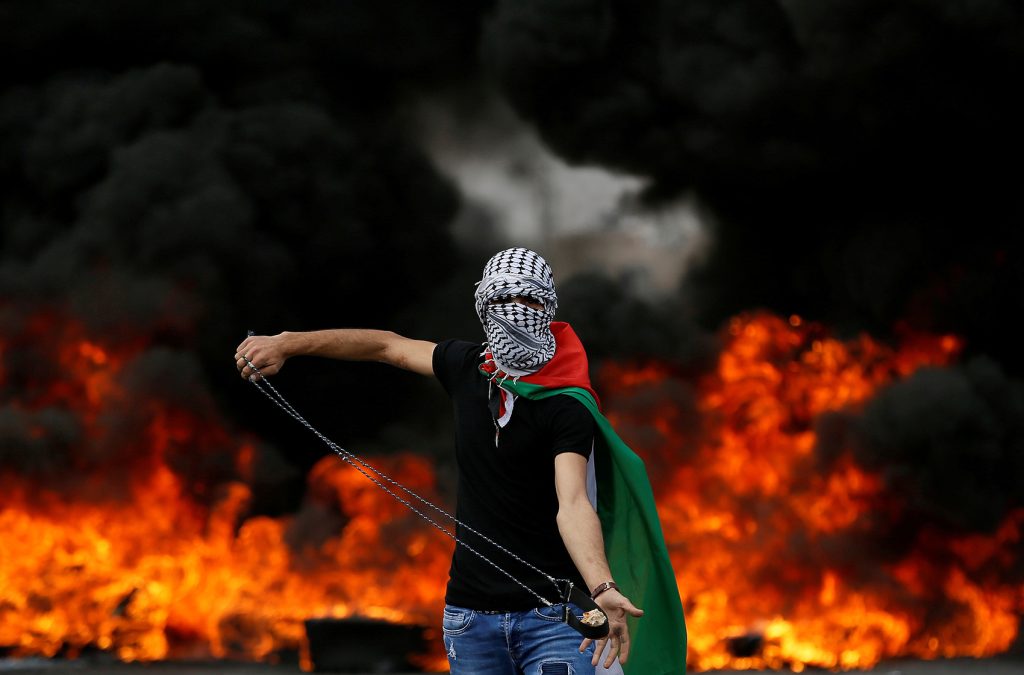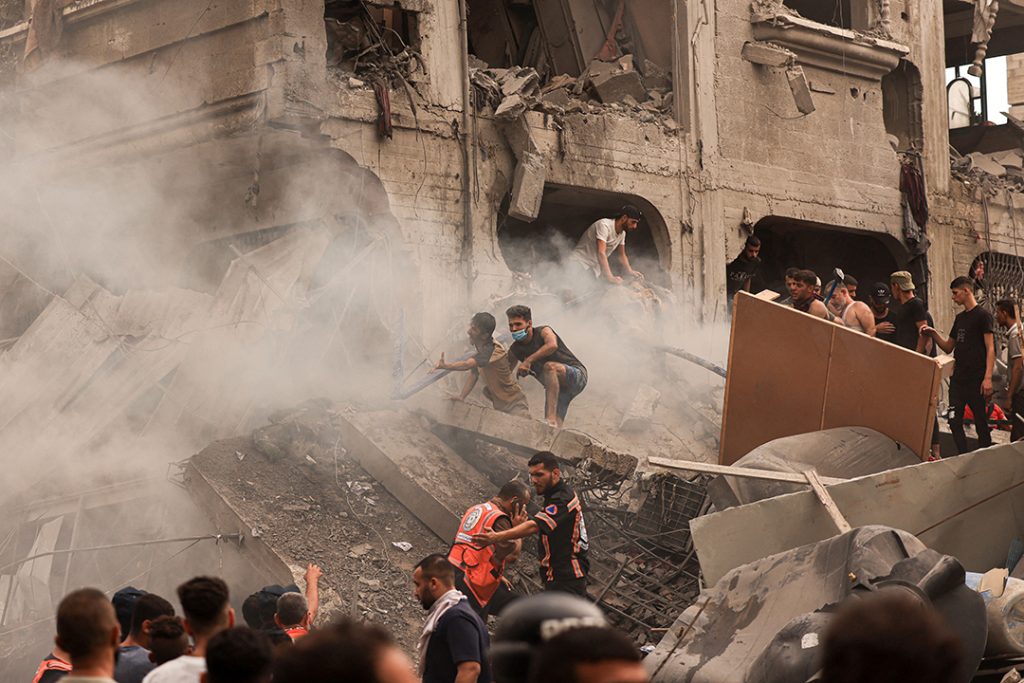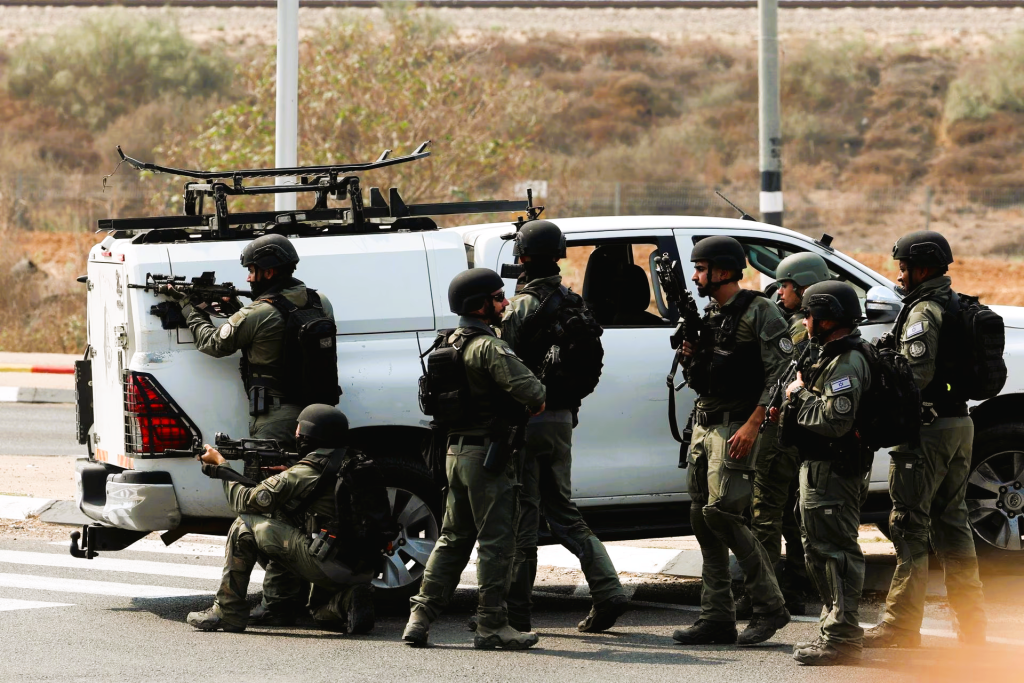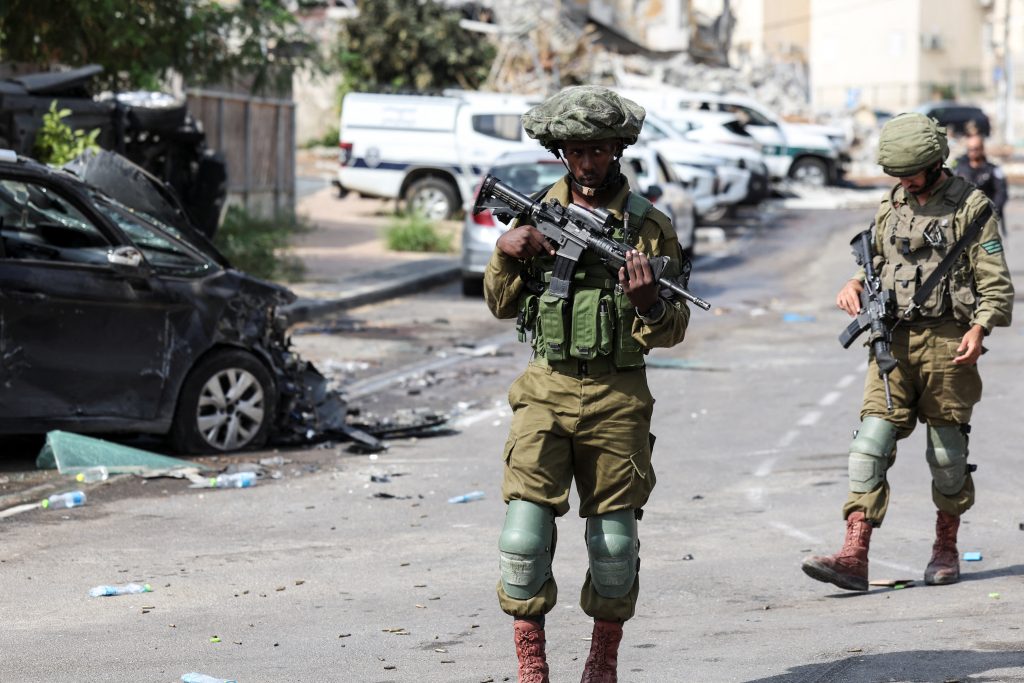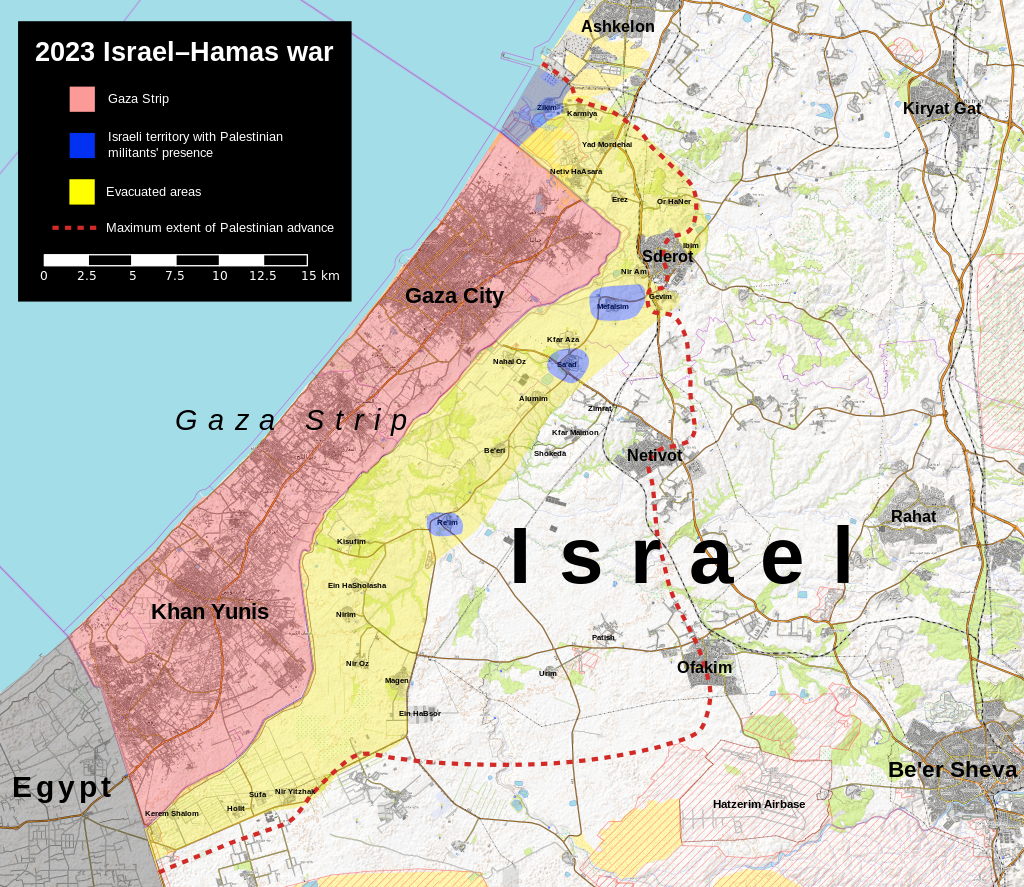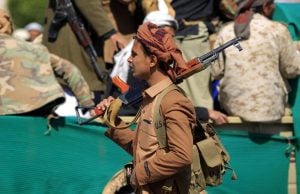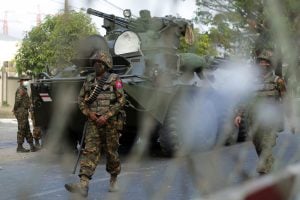Israeli-Palestinian Conflict: The Israeli-Palestinian conflict is a long-standing and complex dispute that has been ongoing for decades. It is a conflict rooted in history, religion, and territorial disputes, with deep-seated grievances and competing claims from both sides. This article aims to provide a comprehensive overview of the Israeli-Palestinian conflict, exploring its origins, key events, and current state of affairs.
Origins of the Conflict
The origins of the Israeli-Palestinian conflict can be traced back to the end of the nineteenth century. At that time, the region known as Palestine was under the control of the Ottoman Empire. The conflict began to escalate in the early twentieth century as Jewish and Arab nationalist movements emerged, each seeking self-determination and control over the land.
Partition Plan and Creation of Israel
In 1947, the United Nations adopted Resolution 181, known as the Partition Plan, which aimed to divide Palestine into separate Arab and Jewish states. On May 14, 1948, the State of Israel was established, leading to the first Arab-Israeli War. Israel emerged victorious from the war, but it resulted in the displacement of around 750,000 Palestinians and the division of the territory into three parts: the State of Israel, the West Bank, and the Gaza Strip.
Tensions and Wars
Tensions between Israel and its neighboring Arab countries remained high in the following years. The 1956 Suez Crisis and Israel’s invasion of the Sinai Peninsula led to mutual defense pacts between Egypt, Jordan, and Syria. In 1967, the Six-Day War erupted after a series of maneuvers by Egyptian President Abdel Gamal Nasser. Israel launched a preemptive attack on Egyptian and Syrian air forces, resulting in Israel gaining control over the Sinai Peninsula, the Gaza Strip, the West Bank, and the Golan Heights.
In 1973, the Yom Kippur War, also known as the October War, broke out when Egypt and Syria launched a surprise attack on Israel to regain their lost territory. The war did not result in significant gains for any party involved, but it led to negotiations and the signing of the Camp David Accords in 1979 between Egypt and Israel, ending the thirty-year conflict between the two countries.
Israeli-Palestinian Peace Process
While the Camp David Accords improved relations between Israel and its neighbors, the question of Palestinian self-determination and self-governance remained unresolved. In 1987, the first intifada erupted, with Palestinians in the West Bank and Gaza Strip rising up against Israeli rule. The Oslo I Accords, signed in 1993, provided a framework for Palestinian self-governance and mutual recognition between the Palestinian Authority and Israel’s government. The Oslo II Accords in 1995 expanded on the first agreement, mandating the withdrawal of Israeli forces from certain areas in the West Bank.
Second Intifada and Barrier Wall
In 2000, the second intifada broke out, driven by Palestinian grievances, a stagnant peace process, and Ariel Sharon’s visit to the al-Aqsa mosque. In response, Israel constructed a barrier wall around the West Bank in 2002, despite opposition from international bodies. The barrier wall aimed to prevent attacks on Israeli civilians but has been a source of controversy, as it often cuts through Palestinian territory.
Recent Developments and Challenges
Efforts to revive the peace process have been ongoing, with the United States playing a significant role in facilitating negotiations. However, the process has faced numerous challenges, including the formation of a unity government between Fatah and Hamas in 2014, which led to the breakdown of talks. Violence between Israelis and Palestinians has flared up periodically, with clashes in Jerusalem’s Old City and the Gaza Strip. These incidents have resulted in casualties and heightened tensions in the region.
The Trump Administration’s Role
The Trump administration made achieving an Israeli-Palestinian deal a priority. It canceled funding for the UN Relief and Works Agency, relocated the U.S. embassy to Jerusalem, and released the controversial Peace to Prosperity plan. These actions were met with mixed reactions, with Israel welcoming the moves while Palestinians rejected them.
Normalization Agreements
In 2020, the United Arab Emirates and Bahrain agreed to normalize relations with Israel, becoming the third and fourth Arab countries to do so. These agreements, known as the Abraham Accords, aimed to improve regional stability and cooperation.
Current State of Affairs
As of now, the Israeli-Palestinian conflict remains unresolved, with ongoing tensions and periodic violence. The recent formation of a far-right and religious government in Israel has raised concerns about the prospects for a two-state solution and has led to increased violence and clashes between Israelis and Palestinians.
Israel–Hamas war 2023
On 7 October 2023, a coalition of Palestinian militant factions, with Hamas at the forefront, initiated a significant offensive against Israel. This escalation, named Operation Al-Aqsa Storm by the Palestinian groups, was a continuation of the ongoing Gaza–Israel tensions. Israel’s subsequent counteractions were termed Operation Iron Swords.
Prior to this escalation, confrontations between Israeli forces and Palestinians in locations such as the Al-Aqsa mosque, Gaza, and Jenin resulted in the deaths of 247 Palestinians and 36 Israelis. The commencement of hostilities was marked by a launch of around 3,000 rockets towards Israel, combined with ground incursions. Palestinian forces breached the Gaza–Israel barrier, targeting Israeli settlements and military outposts. The offensive led to the tragic loss of over 1,200 Israeli lives, including a harrowing incident at a music festival where 260 civilians were killed. Several Israelis, encompassing both military personnel and civilians, were captured and taken to Gaza. Responding to these events, Israeli Prime Minister Benjamin Netanyahu proclaimed states of emergency and war, promising a robust response to what he termed “terrorism”. Hamas, explaining their stance, cited increasing Israeli settlements, the ongoing Gaza blockade, and violence by Israeli settlers against Palestinians as their reasons for the offensive. They further appealed to Palestinians outside Gaza to rally against “the occupiers”.
In retaliation, Israel executed airstrikes across the densely inhabited Gaza Strip. The United Nations highlighted that the conflict had displaced approximately 263,000 Palestinians, over 10% of Gaza’s residents. Concerns about a humanitarian disaster grew as Israel restricted the delivery of essential resources like food, water, and electricity to Gaza, an area already under blockade by both Egypt and Israel. The conflict has been marked by extensive collateral damage, with significant civilian casualties on both sides, and potential war crimes have been reported.
Internationally, many countries decried Hamas’s actions as acts of terrorism, while some primarily Muslim countries pointed to Israel’s occupation of Palestinian territories as the underlying trigger for the conflict. Calls for a reduction in tensions and an end to hostilities were widespread. Reports on 8 and 9 October highlighted skirmishes between Hezbollah and Palestinian factions in Lebanon against Israeli forces. On 11 October 2023, news agencies indicated that Germany was set to provide military assistance to Israel.
Conclusion
The Israeli-Palestinian conflict is a complex and deeply rooted dispute that has spanned decades. It is characterized by competing claims, historical grievances, and geopolitical considerations. Efforts to achieve a lasting peace agreement have faced significant challenges, but international actors continue to work towards a resolution. The search for a just and sustainable solution remains crucial for the well-being and security of both Israelis and Palestinians, as well as for the stability of the wider region.
Disclaimer: This article provides an overview of the Israeli-Palestinian conflict and does not represent an endorsement of any particular political position or solution.
FAQs Israeli-Palestinian Conflict
What are Israel and Palestine? Why are they fighting?
Israel is a country in the Middle East, established in 1948. Palestine refers to a geographic and cultural region in the same area, historically inhabited by a mix of religious and ethnic groups, including Jews, Christians, and Muslims.
The root of their conflict is multifaceted, involving historical, nationalistic, religious, and geopolitical factors. Key issues include mutual recognition, borders, water rights, control of Jerusalem, Israeli settlements, Palestinian freedom of movement, and Palestinian right of return.
What is Zionism?
Zionism is the nationalist movement of the Jewish people that advocates the re-establishment of a Jewish homeland in the territory historically known as Israel.
How did Israel become a country in the first place?
After World War II and the Holocaust, support grew for the Zionist movement. In 1947, the UN proposed a partition plan to divide Palestine into separate Jewish and Arab states, with Jerusalem as an international city. The Jewish leadership accepted the plan, but Arab leaders did not. On May 14, 1948, Israel declared independence, leading to the 1948 Arab-Israeli war.
What is the Nakba?
The Nakba, or “catastrophe” in Arabic, refers to the 1948 Palestinian exodus where around 700,000 Palestinian Arabs fled or were expelled from their homes during the 1948 Arab-Israeli war.
What is the West Bank?
The West Bank is a landlocked territory bordered by Israel and Jordan. Following the 1948 war, it was annexed by Jordan but was occupied by Israel during the 1967 Six-Day War. It’s home to a large Palestinian population and includes significant sites to Jews, Christians, and Muslims.
What is Jerusalem?
Jerusalem is a city considered holy by three major religions: Judaism, Christianity, and Islam. Both Israelis and Palestinians see it as their capital, which complicates peace negotiations.
What is Gaza?
The Gaza Strip is a small territory on the Mediterranean coast, bordered by Israel and Egypt. It’s densely populated and has been governed by Hamas since 2007. Israel withdrew its settlements and military from Gaza in 2005 but has maintained a blockade since 2007.
What are settlements, and why are they such a big deal?
Settlements are communities established by Israelis in territories occupied after the 1967 war, including the West Bank and East Jerusalem. They’re controversial because they’re considered illegal under international law and are seen as an obstacle to peace.
What is the Palestinian Liberation Organization? How about Fatah and the Palestinian Authority?
The PLO is an organization founded in 1964 to represent the Palestinian people. Fatah is its largest faction. The Palestinian Authority (PA) was established as an outcome of the Oslo Accords in the 1990s to govern parts of the West Bank and Gaza.
What is Hamas?
Hamas is a Palestinian Islamist political organization and militant group. Founded in 1987, it’s considered a terrorist organization by Israel, the US, and others.
What were the intifadas?
The intifadas were Palestinian uprisings against Israeli rule. The first was from 1987-1993 and the second from 2000-2005.
How are other Middle Eastern countries handling the conflict?
Historically, many Arab states supported the Palestinians against Israel. Over time, and especially recently, countries like the UAE, Bahrain, and others have normalized relations with Israel, often due to shared concerns about Iran.
Why are the US and Israel so friendly?
Their relationship is based on shared democratic values, strategic interests, and strong pro-Israel advocacy in the US. The US views Israel as a key ally in a turbulent region.
How does the world feel about Israel/Palestine?
Opinions vary. Some support Israel’s security concerns, others are sympathetic to the Palestinians. International consensus generally supports a two-state solution.
What is the Israeli-Palestinian peace process?
Initiated in the early 1990s with the Oslo Accords, it’s an ongoing effort to achieve peace between Israel and Palestine.
How do the current Israeli and Palestinian governments approach the conflict?
The relationship between the Israeli government and the Palestinian authorities is complex and multi-faceted. Periodic flare-ups of violence, political shifts, and external influences from other countries or regional entities can impact their approaches to the conflict.


